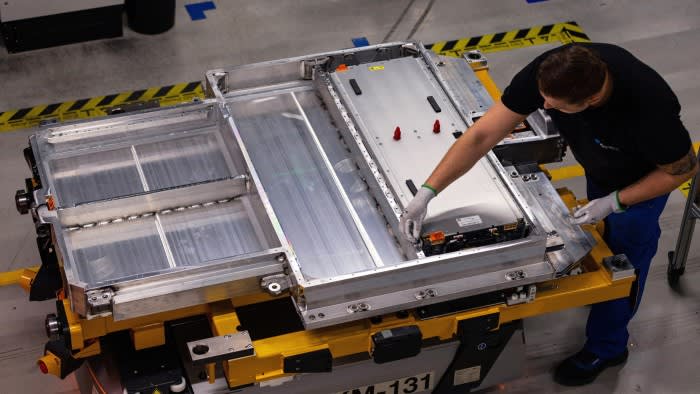Europe’s Battery Problems Show the Governments Need to Up Their Game
Europe is facing a growing battery problem that is impacting the energy sector and the environment. With the increasing demand for electric vehicles, renewable energy sources, and energy storage solutions, the need for high-quality batteries has never been more crucial. However, Europe is struggling to keep up with the demand, leading to a variety of issues that need to be addressed by governments and policymakers.
The Current Battery Landscape in Europe
Europe is currently heavily reliant on batteries for a wide range of applications, including electric vehicles, grid-scale energy storage, and portable electronics. With the rapid growth of these industries, the demand for batteries has been steadily increasing. However, Europe lacks the necessary infrastructure and supply chain to meet this demand, leading to a reliance on imported batteries from other regions such as Asia.
The Environmental Impact
Importing batteries from other regions has a significant environmental impact due to the carbon emissions associated with transportation. Additionally, the disposal and recycling of batteries in Europe are not adequately regulated, leading to potential environmental hazards. Improper handling of batteries can result in toxic chemicals leaching into the soil and water, posing a threat to human health and the environment.
The Economic Implications
Europe’s reliance on imported batteries also has economic implications, as it puts the region at a disadvantage in terms of competitiveness and innovation. By not having a strong domestic battery industry, Europe is missing out on opportunities for job creation and economic growth. Furthermore, the high cost of importing batteries can lead to higher prices for consumers, hindering the adoption of clean energy technologies.
The Need for Government Intervention
Given the urgency of the battery problem in Europe, governments need to take decisive action to address the issue. This includes investing in research and development to support the growth of a domestic battery industry, implementing regulations to ensure the safe disposal and recycling of batteries, and providing incentives for the adoption of clean energy technologies.
Investing in Research and Development
One of the key ways in which governments can up their game in addressing Europe’s battery problems is by investing in research and development. By funding research into battery technologies and supporting the development of new innovations, governments can help to foster a vibrant domestic battery industry. This will not only create jobs and boost the economy but also reduce Europe’s reliance on imported batteries.
Implementing Regulations
Another crucial aspect of government intervention in the battery sector is the implementation of regulations to ensure the safe disposal and recycling of batteries. By establishing clear guidelines and standards for the handling of batteries, governments can minimize the environmental impact of these technologies and protect human health. Additionally, regulations can also help to promote transparency and accountability in the battery industry, ensuring that companies adhere to ethical and sustainable practices.
Conclusion
Europe’s battery problems are a pressing issue that requires immediate attention from governments and policymakers. By investing in research and development, implementing regulations, and providing incentives for the adoption of clean energy technologies, governments can help to address the environmental, economic, and social challenges posed by the growing demand for batteries. It is essential for Europe to up its game in the battery sector to ensure a sustainable and prosperous future for the region.
FAQs
What are the main challenges facing Europe’s battery industry?
Some of the main challenges facing Europe’s battery industry include the lack of domestic production capacity, the environmental impact of importing batteries, and the need for regulations to ensure the safe disposal and recycling of batteries.
How can governments support the growth of a domestic battery industry?
Governments can support the growth of a domestic battery industry by investing in research and development, implementing regulations to promote sustainability, and providing incentives for companies to innovate and expand their operations.
What are the benefits of addressing Europe’s battery problems?
Addressing Europe’s battery problems can help to reduce carbon emissions, create jobs, boost the economy, and promote innovation in the energy sector. It can also help to ensure a sustainable and secure energy supply for the region.




